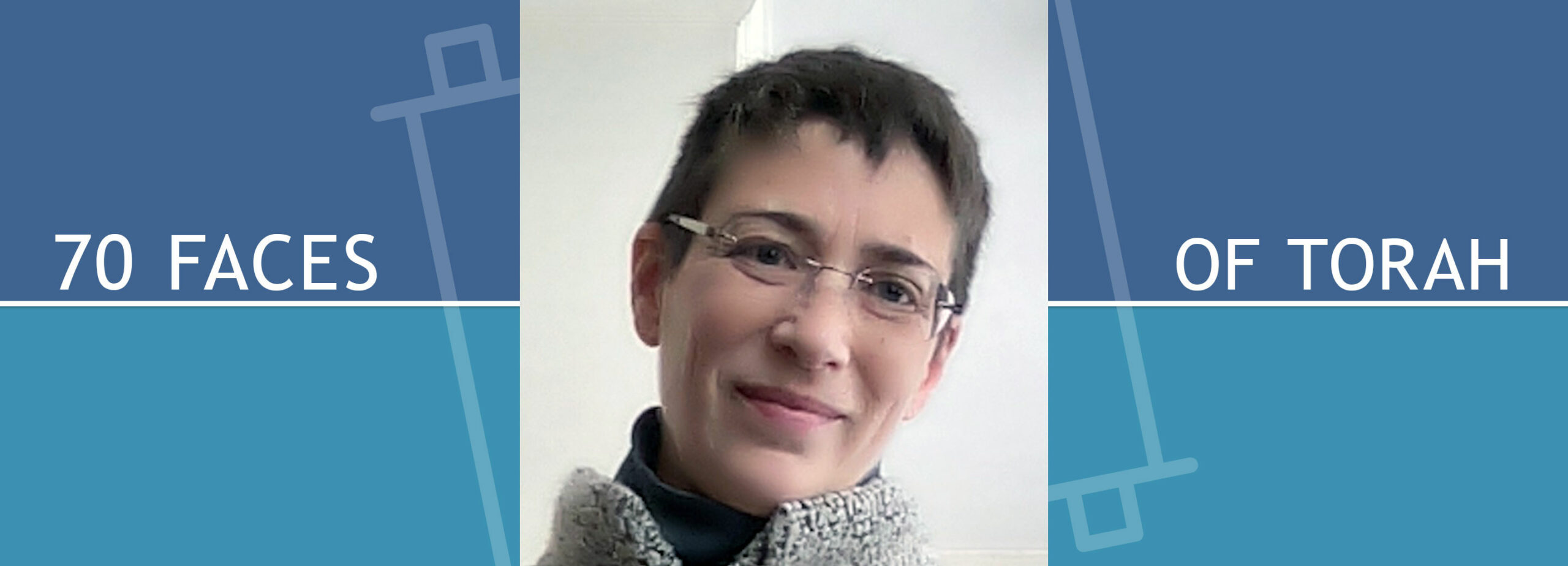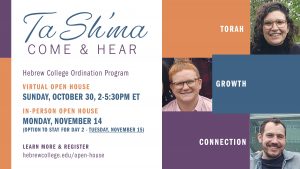Koleinu Keeping Safe and Letting Go

Parashat Chukat (Numbers 19:1-22:1)
There is nothing like preparing to send your firstborn off to college to get you thinking about legacy and the passage of time. Looking back on the past 18 years, what stays in my mind—more than the cliches of baby’s first steps or first words—are all the things I’ve tried to tuck into my childrens’ souls on the off beats. The summer days we spent looking at bugs and walking to the local deli for a root beer to pour over our homemade vanilla ice cream were not about the bugs and the root beer floats per se (although the latter were delicious!) but rather about trying to teach the boys to notice the world around them, to attend to even the smallest creatures, to delight in simple treats that we could prepare together. And the day when I tossed them the house key so they could tumble home through the woods without me for a Brother Party was more about allowing them the right amount of freedom than it was about the key or the woods.
I am spending a good deal of time this summer in my hometown, assisting the rabbi at my old synagogue while staying in my parents’ basement. This, too, is redolent of the passage of time, as we all grow older and navigate new roles. To be fully adult and able to be of service to my parents and to their community is a dividend on the long-term investment that they have made in me. My early memories of my mother lighting Shabbat candles and my father singing kiddush echo in my own burgeoning leadership.
In Parashat Chukat we find ourselves at a pivot point in the story of Bnei Yisrael. This is the parashah in which Moses’s siblings Aaron and Miriam die, and in which God decrees that Moses will not enter the Holy Land, despite his having devoted his life to bringing the Israelites there. It turns out that none of the offspring of that certain Levite couple we encountered at the beginning of the Book of Shmot (Exodus) will enter the Promised Land. This is a profound moment of leadership transition, where God prepares Moses to toss the house key to Bnei Yisrael, to complete the journey home for themselves.
From Moses’s point of view, you might think of this fact as a moment of sadness and defeat—and, in some ways, it is—but the Torah is painting on a larger canvas. Parashat Chukat, after all, also contains the mysterious tradition of the פרה אדומה—the Red Heifer. This singular ritual is famous for its contradictory nature: that the ashes of the Red Heifer were to be laid by, for the purpose of purification, while the process of generating those ashes rendered all involved impure. To try to understand it at the literal level seems pointless, but that doesn’t mean the passage itself is pointless. The first-century sage Rabbi Yochanan ben Zakkai taught his students that while it is difficult to understand, its value is intrinsic, because it comes from our holy tradition. By Rabbi Yochanan’s lights, ours is not to question God’s ways but simply to accept the decree and move forward. If Moses rails at his fate, we do not hear about it. He continues to do his job regardless, tuned instead to posterity.
The ashes of the פרה אדומה are to be stored, like Aaron’s blossoming staff that Rav Rachel Adelman wrote so beautifully about last week, לְמִשְׁמֶרֶת, for safekeeping.
This word מִשְׁמֶרֶת shows up at crucial moments in Torah, indicating something precious that gets set aside and kept close. The word is built from the root letters shin-mem-resh, to keep, guard, protect, treasure up. In Parashat Toledot, when God speaks to Isaac about his father Abraham’s covenant with God, that covenant is referred to as a מִשְׁמֶרֶת (Breishit 26:5). And when the Israelites are instructed in how to prepare their homes with the blood of the paschal lamb, for protection from the tenth plague, this, too, is מִשְׁמֶרֶת (Shmot 12:6). Likewise, the omer of manna that is to be kept before God for all generations (Shmot 16:32-34), and Aaron’s staff of almond blossoms (Bamidbar 17:25).
מִשְׁמֶרֶת carries in it a sense of something to be treasured, to be protected for the future. It also carries a sense of holiness. In Vayikra 8:35, we read:
וּפֶתַח אֹהֶל מוֹעֵד תֵּשְׁבוּ יוֹמָם וָלַיְלָה שִׁבְעַת יָמִים וּשְׁמַרְתֶּם אֶת־מִשְׁמֶרֶת יְהֹוָה וְלֹא תָמוּתוּ כִּי־כֵן צֻוֵּיתִי׃
You shall stay at the entrance to the Tent of Meeting day and night, seven days, to protect the posterity of God, that you not die, for thus I have been commanded.
Aaron and the priests, in this earlier passage, take on their duty of tending to the Mishkan, and with it the very מִשְׁמֶרֶת of God, the holy treasure that is God’s presence.
To protect the posterity of God is quite a responsibility. This, I believe, is what we take on as parents, guarding what is precious to us, even as we learn over and over again that it doesn’t actually belong to us.
As Chukat teaches, our roles in life change over time. We start processes whose ends we cannot see, we launch projects and people that will go in directions we never imagined. The people who come after definitionally will go to places that Moses, Miriam, and Aaron—that we—can’t go. But they couldn’t have gotten there without the people who came before.
It is the last mention of מִשְׁמֶרֶת in the Torah that tells this most poignantly.
In Dvarim 11:1, we learn:
וְאָהַבְתָּ אֵת יְהֹוָה אֱלֹהֶיךָ וְשָׁמַרְתָּ מִשְׁמַרְתּוֹ וְחֻקֹּתָיו וּמִשְׁפָּטָיו וּמִצְוֹתָיו כָּל־הַיָּמִים׃
You shall love Adonai your God, and keep God’s posterity, God’s laws, God’s rules, and God’s mitzvot, all of your days.
This summation tells us to keep our minds on what is holy, to guard and treasure what is most important. It speaks of loving and teaching, cherishing goodness and tucking holiness into one another’s souls, each and every day. In Chukat as in life, change is the eternal constant; we are always simultaneously holding close to what’s essential and tossing the house key to the next generation.
Naomi Gurt Lind is a rising Shanah Gimel student at the Rabbinical School of Hebrew College, and is looking forward to rabbinic internships this year with 2Life Communities and Betenu Congregation. Naomi is an Innovation Lab grant recipient, a member of the inaugural cohort of Mayyim Rabbim fellows at Mayyim Hayyim Community Mikveh, and the editor of the 70 Faces of Torah blog. When she has a free moment, she enjoys solving crossword puzzles (in pencil!), writing divrei Torah on her blog, Jewish Themes, and playing Bananagrams with her spouse and their two genius children.
 Ever considered the rabbinate? Join us for our fall Open House. Learn more and register here.
Ever considered the rabbinate? Join us for our fall Open House. Learn more and register here.

